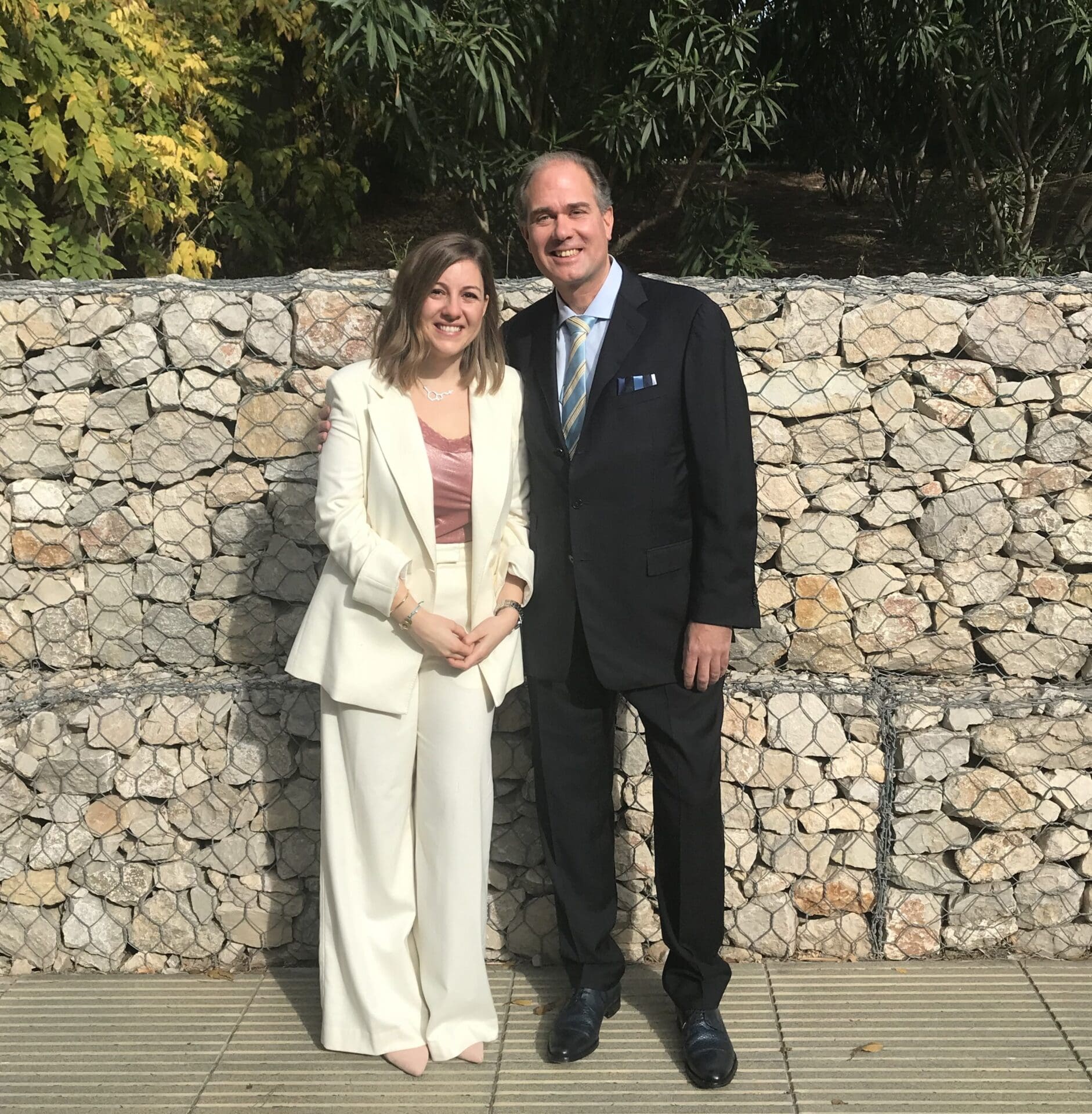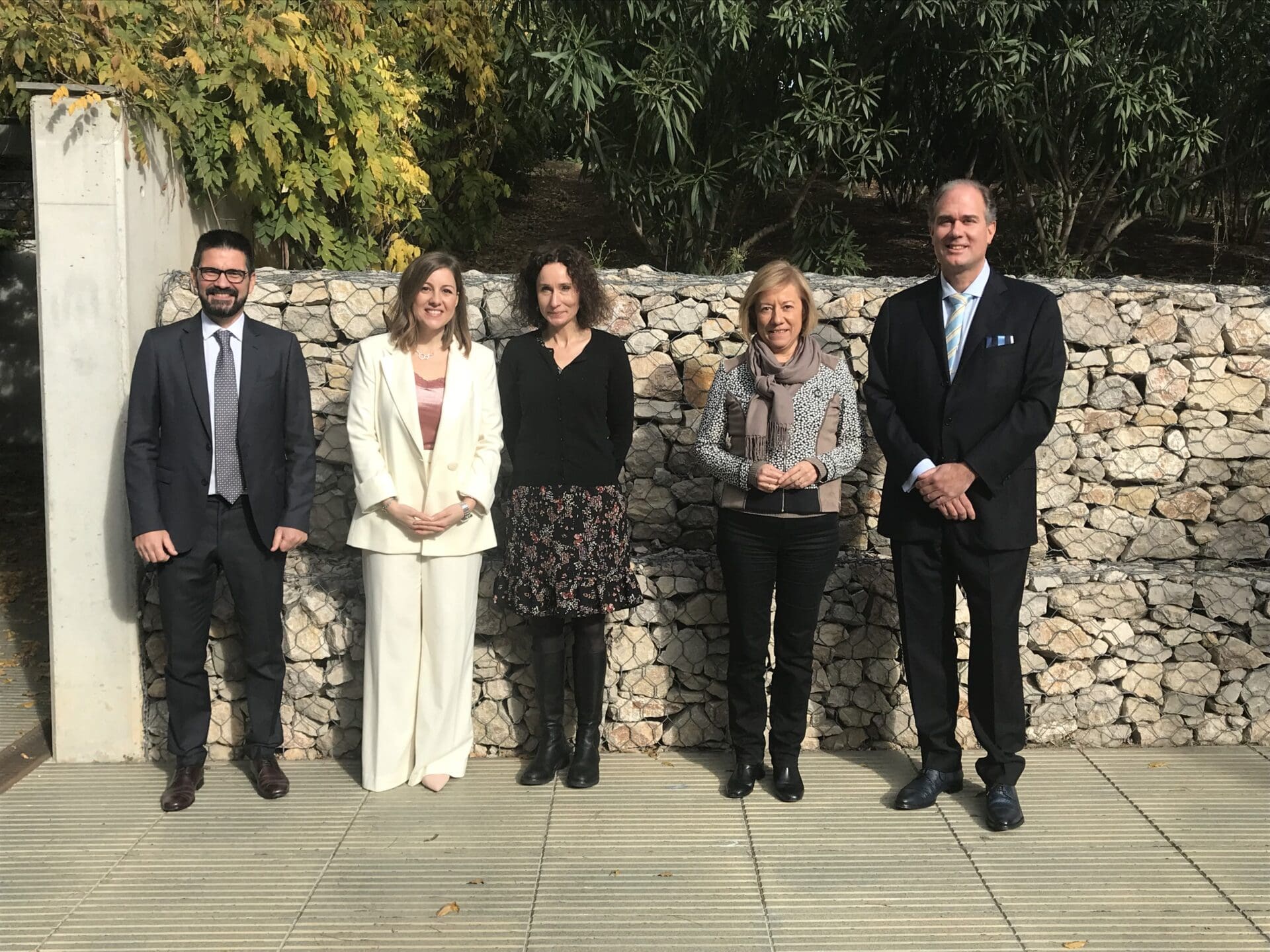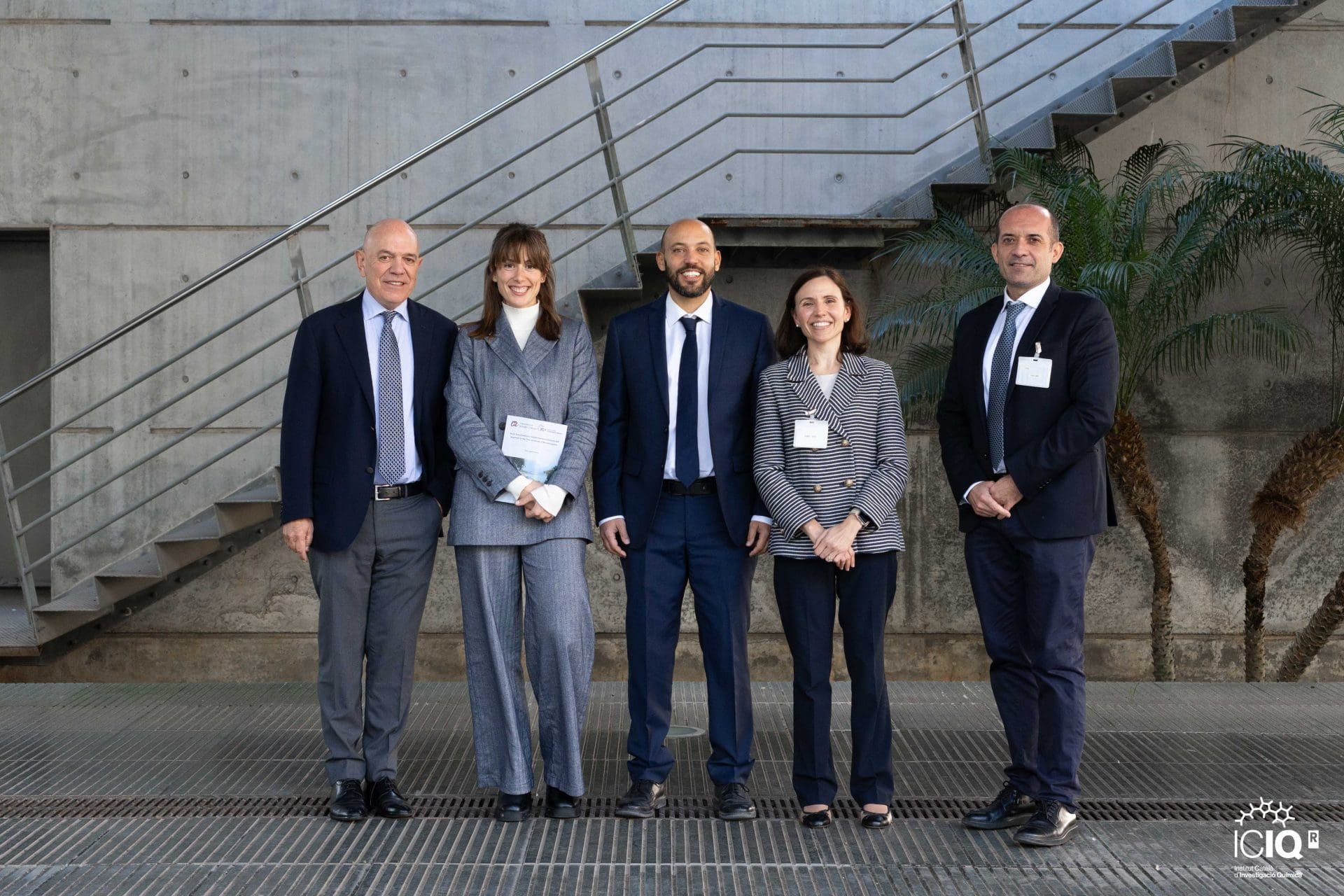Syncharitíria Dr. Bosnidou!
Alexandra E. Bosnidou, PhD student under the supervision of Prof. Kilian Muñiz (ICIQ), has defended her PhD Thesis entitled “New Methodology for C-N Bond Formation within Iodine Redox Manifolds” (assigned to the Department of Organic and Analitic Chemistry of the Universitat Rovira i Virgili) publicly on November 22st at the ICIQ Auditorium.
The members of the examining committee were: Prof. Dr. Esther Lete (Universidad del Pais Vasco), Prof. Dr. Meike Niggemann (RWTH Aachen University) and Prof. Dr. Paolo Melchiorre (ICIQ).
Dr. Bosnidou was born in Alexandroupolis, a coastal town in Evros, Greece. She studied Chemistry and also did a Master at University of Ioannina. While doing a research internship at the Max Planck-Institut für Kohlenforschung she heard about ICIQ’s research and decided to join the institute for her PhD, which she has carried out in the Muñiz group. Thanks to Tarragona’s Mediterranean weather, she hasn’t been homesick. She has also embraced the opportunity to learn Spanish.
Why did you become a scientist? What would you want to achieve as a scientist?
I like to say that I’m a chemist more than a scientist because that’s what I wanted to be since I first learnt about it – I didn’t know anything about chemistry until high school. If I hadn’t been a chemist, I would be an archaeologist because I like to discover things. Both sciences are all about discovering: one discovers things about the past and the other about the future! I don’t have a specific goal, but I’d like to contribute somehow to improve humanity’s quality of life.
From the lessons learnt at ICIQ, which one do you value the most?
Everything! You have continuous professional training during your PhD. You have the opportunity to meet new people and cultures. For example, when I arrived, I couldn’t even say hello in Spanish and now I can speak it fluently.
What will you miss the most from ICIQ?
The Seminars are amazing. Having the possibility to learn from and meet renowned chemists who are making great contributions to the field is a fantastic experience.
What advice do you have for students who are starting their PhD now?
First, they need to like a lot the chemistry they’re going to be doing. I also think it’s very important to have a good relationship with your supervisor because that’s who will motivate and help you the most during your PhD.
Where are you going next?
I will do a postdoc, ideally in the pharma industry. I think that’s the logical step now, although I would also enjoy working on science publishing – you get to learn about all the new discoveries in chemistry and to travel.
If you were a lab instrument which would you be?
I would like to be one of those robotic arms that does a lot of different tasks at the same time – it would be great; I could do all the reactions I wanted easily!
Related news

Let's create a brighter future
Join our team to work with renowned researchers, tackle groundbreaking
projects and contribute to meaningful scientific advancements








 10-01-2025
10-01-2025 


















